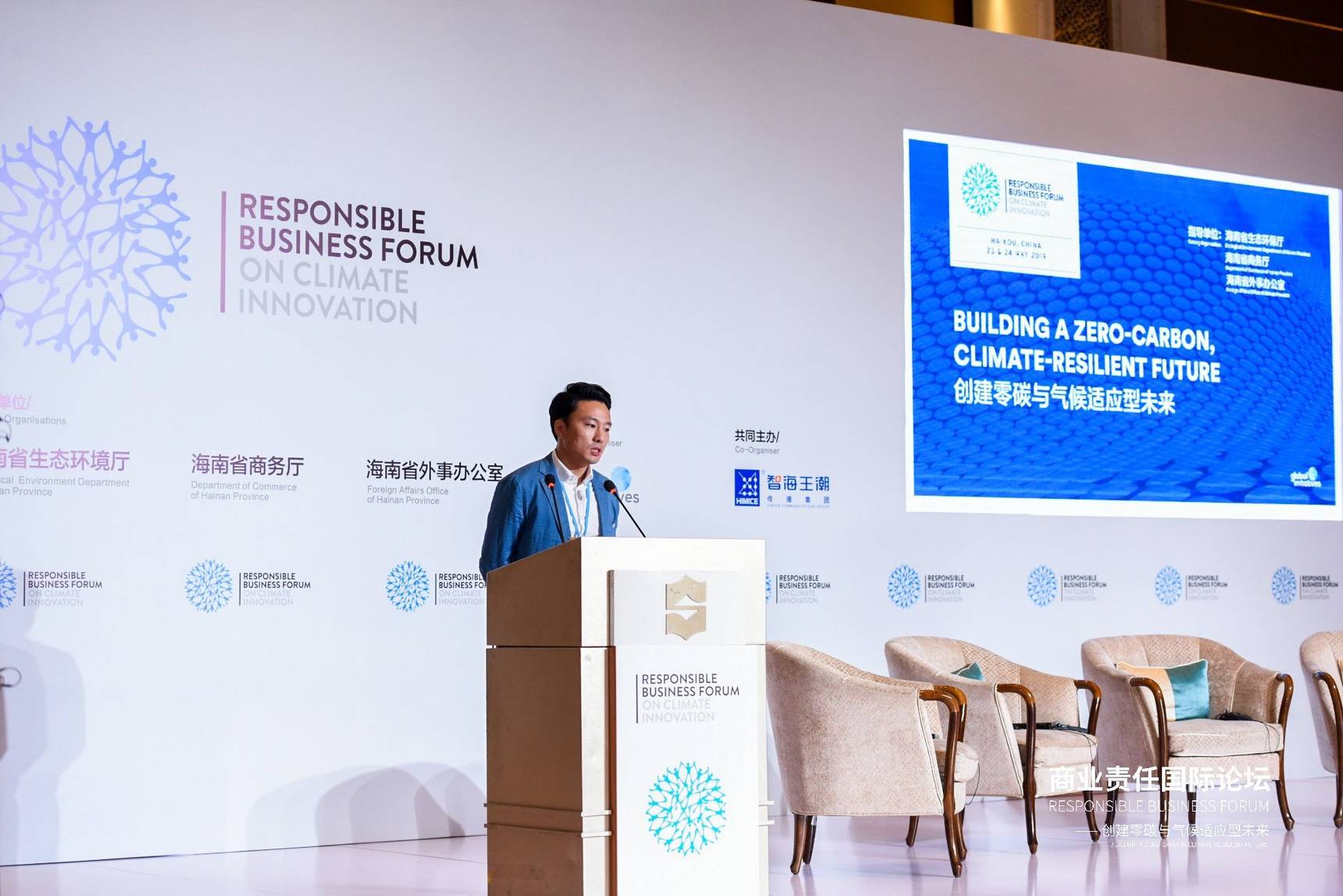- Home
-
Products
- News
- About
- Become a Distributor
Global - English

May 24, HAIKOU, China – XAG has been invited to participate in the Responsible Business Forum on Climate Innovation held in Haikou on May 23-24, sharing its latest progress and experience on how to structure a sustainable, low-carbon agroecosystem. As a global leading agri-tech company, XAG has always been committed to shaping a smart future of sustainability, with technological innovations and corporate social responsibility invariably being its core values. Justin Gong, Co-Founder and Vice President of XAG, gave a keynote speech on XAG’s Intelligent solutions, explaining the critical role of technology as a catalyst for transformative change within the agriculture sector. In addition, Gong attended the forum’s parallel session on Food and Agriculture as a panel expert to discuss the symbiotic relationship between food production and climate resilience.

The Responsible Business Forum (RBF), sponsored by Global Initiatives, is a leading international forum with the objective of accelerating solutions for a more sustainable world through business innovation and public-private sector cooperation. The RBF event series have been held across 14 countries in the past 12 years, successfully facilitating partnerships among businesses, governments and international agencies from over 50 countries.
This year, under the broad theme of “Building a Zero-Carbon, Climate-Resilient Future”, the first ever RBF on Climate Innovation debuted in China and brought together more than 300 leaders from government, businesses, investors, international organisations and academia to present actionable, cutting-edge solutions on circular economy and scale collaborative innovations for a climate positive future. Big corporations, such as Mars, AB InBev, SIG, BASF, Alibaba, Apple, IBM and SAP, and international NGOs, such as United Nations Development Programme (UNDP), World Wildlife Fund (WWF) and Food and Agriculture Organization of the United Nations, have attended the forum.
At the parallel session on Food and Agriculture, discussions were structured around the critical role of climate solutions for the global food system to build a climate adaptive future. Agriculture and food system accounts for nearly one third of the world’s human-made greenhouse gas emission. Kevin Rabinovitch, Global Vice President Sustainability of Mars, talked about his views on deforestation for agricultural purposes. “Fighting against deforestation requires not only direct collaboration between companies but also government in the countries where the forests stand to get involved.” For example, Mars is very active in the Consumer Goods Forum where it has been leading a project “what is the future of consumer actions on deforestation” and cooperating with some of its biggest competitors to establish a sustainable cocoa supply chain.

Agriculture is also a sector most easily susceptible to climate change, as rising temperature and extreme weathers would reduce crop yields and undermine food safety. To transform the global food system, all stakeholders must come together to find new ways to nutritiously feed the growing population with limited arable lands while minimising carbon emissions.
XAG, tapped into the frontier of agriculture technology in 2013, has been involving in this long-term battle against climate change and developing smart agriculture solutions for a zero-carbon, circular economy. Speaking on stage at the RBF presentation, Justin Gong explained that XAG starts with building digital farming infrastructures such as RTK navigation networks and HD field maps to pave the way for auto agri-machines. Through applying UAS (Unmanned Aerial System) to the fields for precision farming (e.g., seeding, spraying, fertilisation and pollination), XAG has improved production efficiency and produce quality while reducing 30% of pesticides and 90% of water resources. For instance, since drones do not touch the ground, soil compaction is avoided and fertile soils are maintained to better hold microorganisms which break down organic matters and recycle nutrients in a form that plants can absorb. This results in a well-functioning ecosystem in the fields with abundant biodiversity. Also, with precision spraying technology and artificial intelligence, farmers can plant more with less chemicals and harvest fruits and vegetables with little pesticide residue.
“When we think even further in the future, farmlands will be automated and you would see robots running without human assistance. We want to make farming cool again,” emphasized by Gong.

Currently, XAG’s drones in operation generate a large amount of agriculture production data every day. With big data and IoT technology connecting land, crop, farmer and consumers, XAG helps manage the farmland more scientifically and makes agriculture production traceable, building trust between the supply and demand side. And with XAG Agriculture Intelligence (XAI), farming data can be collected and fully utilised to enable AI prescription service, identify crop diseases and predict yields.
“By using technologies, we can minimise the ecological footprints of agricultural production, improve the quality of food and farmers' livelihood, and protect biological diversity,” said Justin Gong. In 2018, XAG started the Sustainable Farming Programme with Bayer and Alibaba, to educate farmers on sustainable agriculture, to drive the use of safer, greener chemicals and to connect buyers and consumers with guaranteed channels.

XAG has also involved in a series of ecological projects. The Ruoergai Grassland located in Sichuan Aba, China has been severely degraded in the past 20 years, and with drone seeding technology controlled by AI, XAG helps the local herdsmen spread grass seeds precisely into the destroyed areas to restore the ecosystem without disturbing other local wildlife. In the desert areas of Alxa, China, XAG joins Alipay’s Ant Forest Program on afforestation by utilising intelligent sensors and AI-driven cameras behind every session of the trees to monitor the weather and the tree growth. XAG has also used drones to pollinate almond trees in Australia and fragrant pears in Xinjiang, China to tackle the global pollination crisis resulted from bee population decline.
All the climate-smart agriculture solutions developed by XAG not only dwindle natural resource inputs and remove environmental stressors but also empower farmers to make scientific decisions to shrink the yield gap and increase income. As Justin Going pointed out, “technology is the greatest equaliser in our society, and it is doing more things than we expect, even in the most remote areas."